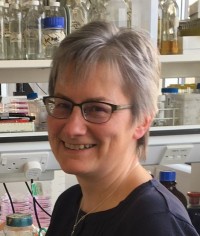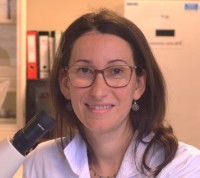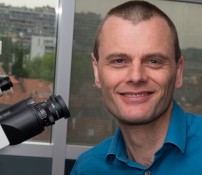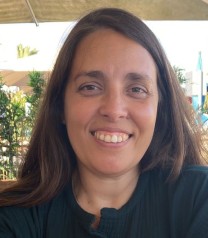Governing Board Bio
|
The president, Catherine J. Lilley is a researcher in plant nematology. After completing a degree in Botany and then a PhD at the University of Durham, she joined the Plant Nematology Group at the University of Leeds. During her time there she has been involved in a wide range of research projects, from lab bench to field, but she has always had a particular interest in the molecular mechanisms that underpin the plant-nematode interaction. |
|
 |
| The secretary, Sebastian Eves-van den Akker was educated at the University of Leeds and the James Hutton Institute. In 2018, he started the Plant-Parasite Interactions group at the Department of Plant Sciences, University of Cambridge. Sebastian is a geneticist, interested in the genes that control the dialogue between plants and their parasitic nematodes |  |
|
|
Johannes (Hans) Helder (Johannes is my formal first name) studied phytopathology at Wageningen University, and did his PhD at the Laboratory of Plant Physiology. After having worked on nematode effectors for a few years, Hans initiated research on the molecular evolution of nematodes. Currently, Hans’ interests are mainly comparative genomics (from an evolutionary perspective) and soil molecular biology. In the latter domain we investigate the functioning of nematodes in their highly complex biological context.
|
 |
|
| Raquel Campos-Herrera studied Biology at the University of León (Spain) and completed his Ph.D. at the University Complutense of Madrid (Spain) with research on the use of entomopathogenic nematodes for biological control performed at the Spanish National Research Council (CSIC). By using nematodes as a model system, her current work at ICVV-CSIC addresses the long-term challenge of reducing dependence on traditional agrochemicals in pest control, with special emphasis on the vineyard, focusing on two specific challenges (i) developing pest control bio-tools, and (ii) understanding how agronomic management impacts agroecosystems to identify the most sustainable actions. |  |
|
| Wim Bert completed his studies in Biology and Nematology at Ghent University. He is now responsible for the Nematology Research Unit and the International Master of Science in Agro and Environmental Nematology, Ghent University. His current work centres on taxonomy, phylogeny, morphology, and biology of nematodes from natural and agricultural ecosystems, hereby integrating a tradition of light-microscopy and ultrastructural morphology with molecular approaches. |  |
|
| Shahid Siddique studied botany at BZU (Pakistan) and completed his PhD at the University of Natural Resources and Life Sciences (Austria) where he investigated the relevance of plant cell wall modifications in facilitating nematode infection. He worked several years as a research group leader at the University of Bonn Germany. Afterwards, he moved to USA and joined UC Davis (Department of Entomology & Nematology) as an Assistant Professor. His research at UC Davis focuses on elucidating the interactions between root-knot nematodes and their hosts using molecular and applied methodologies. He also teaches undergraduate and graduate level nematology course at UC Davis |  |
|
|
Cláudia Vicente |
 |
